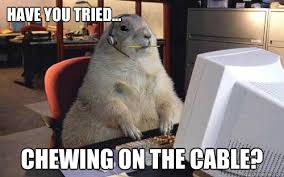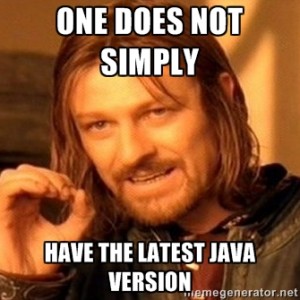
“Would you consider yourself to be a digital native or a digital immigrant? Does your experience reflect the digital native/digital immigrant discourse?”
I recently read an article outlining the discourse on the validity of the digital native and digital immigrant divide. Published by Oxford University Press, Digital Natives: Fact or Fiction? asked its readers whether their experiences reflect the current narrative.
Prensky (2001) was the first to describe the ‘digital divide’ as a gap developing between “the young who have grown up with technology and older people who have become acquainted with technology later in life.” Later on, however, Prensky (2009) acknowledged, “Older people may be digital natives.” Despite these claims, Oxford University press is highlighting that the assumption that young people are good with technology is perpetuated (2001).
So, what if my experience doesn’t reflect the current discourse?
After listening to Tori Swanson, a Hootsuite Corporate Solutions Consultant, speak to my Social Media for Information Professionals course two weeks ago, I realized that I am not entirely on my social media game. During her presentation she mentioned four key social media platforms that—in her opinion—we (as future librarians) should utilize: Facebook, Twitter, Instagram, and LinkedIn.
As a “digital native,” I do not possess all the confidence it takes to operate at the highest level of a digital marketing or communications professional like Tori does. Many positions that I have interviewed for this semester, however, have assumed that I can operate on this plane, despite this information gap on my resume. My technological skills (or, rather, my lack thereof) are in fact barriers to me as a young person. Not only do I not possess many of these skills, but I don’t even have a LinkedIn account. It was this realization that prompted me to blog about my inexperiences of technology skills as a ‘digital native.’ Last week I was told by a young public librarian that most interviewers look at young librarians in training as a vault of technological skills and knowledge even when most of the time we are not. So, do my experiences reflect the digital native/digital immigrant discourse?—No.
It is just something we are going to have to deal with.

Anyone (including me) can learn to use technology, but as ‘digital natives’ we must learn it to survive amongst those who are good with technology. It may not be fair, but that is the reality that we (as future information professionals) are going to have to come to grips with. There is an assumption that we are proficient with tech, and we will be judged on these assumptions. I am a highly trainable individual and sharp when it comes to learning new things, however, to my surprise, it has been difficult to find these opportunities in a place that supports future information professionals. If I am being honest, my social media course has been my biggest connection to the tech world.
My first step is to follow Tori’s advice and to get a LinkedIn account. My future strategies include signing up for “Group Training Sessions for all things social media strategy, Instagram, and Mobile for iOS, from our expert Hootsuite Social Media Coaches” (Swanson, 2016). I also plan on asking one of the PhDs here at SLAIS to run an extra HTML training session for students who have classes during the current sessions. It’s true that the iSchool has in many ways let down its students on the tech front, but I have heard these comments echoed across different North American information institutions. For now, it seems like for many of us who have not found our technology grounding, we will have to search it out ourselves. As future librarians we must see the value in gaining the skills that we are assumed to have. The bottom line is that as young information professionals we are expected to have mastered technology, whatever that means.
I am a digital native and I suck with technology.
Resources
Prensky, M. (2001). Digital natives, digital immigrants. On the Horizon, 9:1-6
Prensky, M. (2009). H. sapiens digital: from digital immigrants and digital natives to digital wisdom. Innovate Journal of Online Education, 5
Swanson, Tori. “Intro to Social Media Strategy.” Social Media for Information Professionals. Vancouver. 8 Mar. 2016. Lecture.